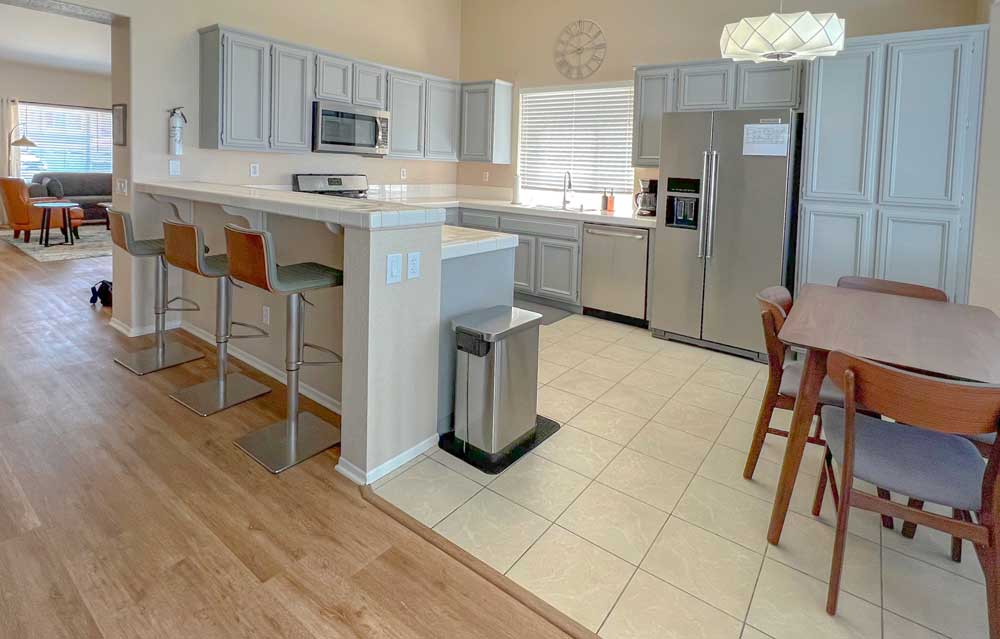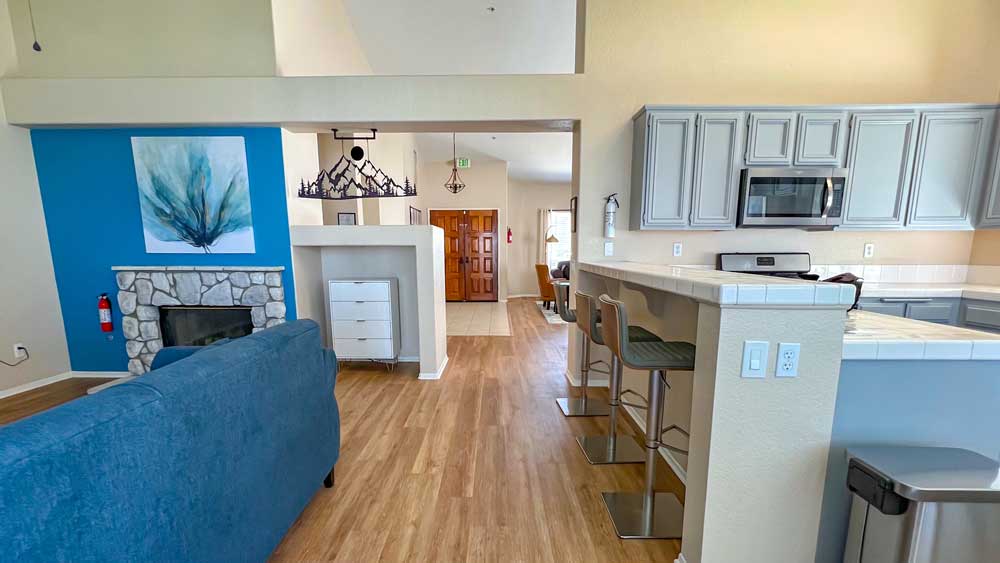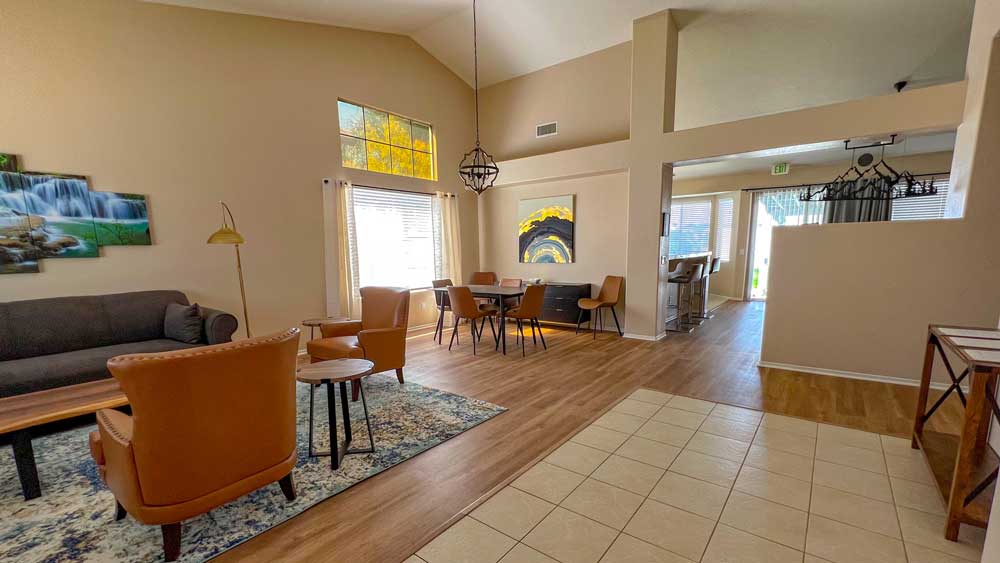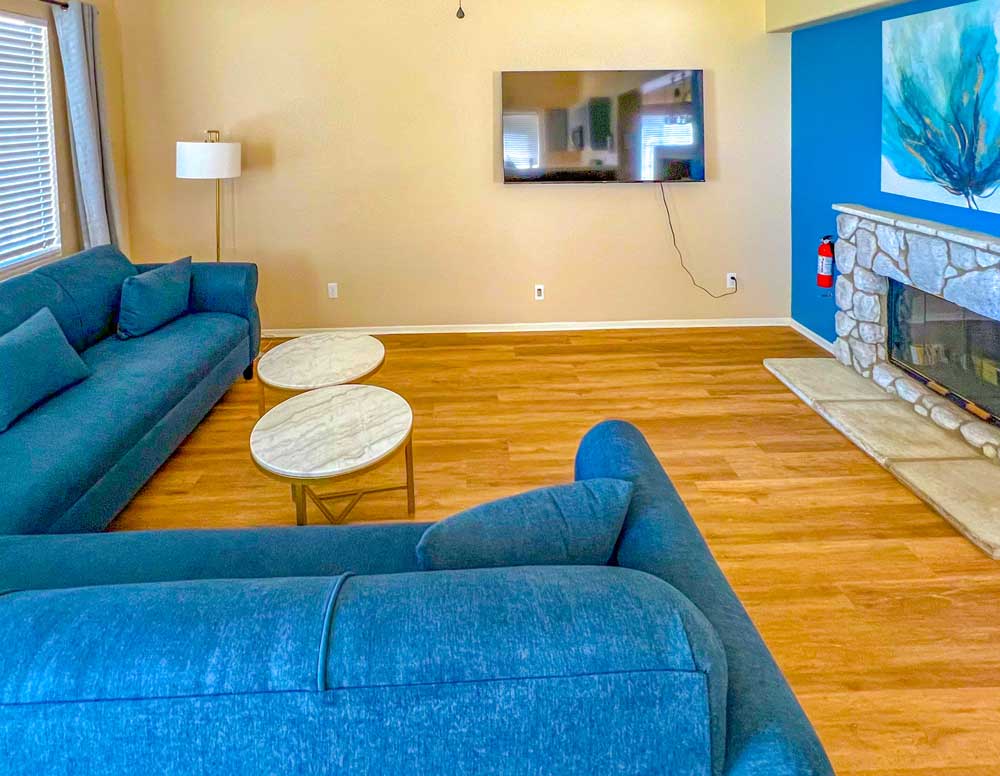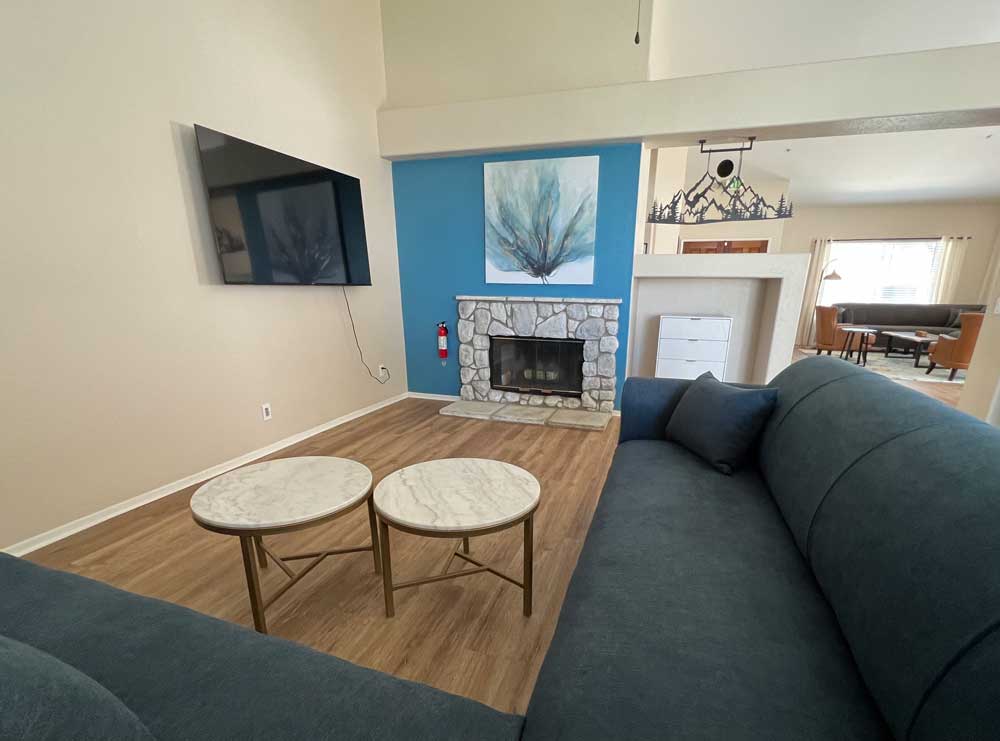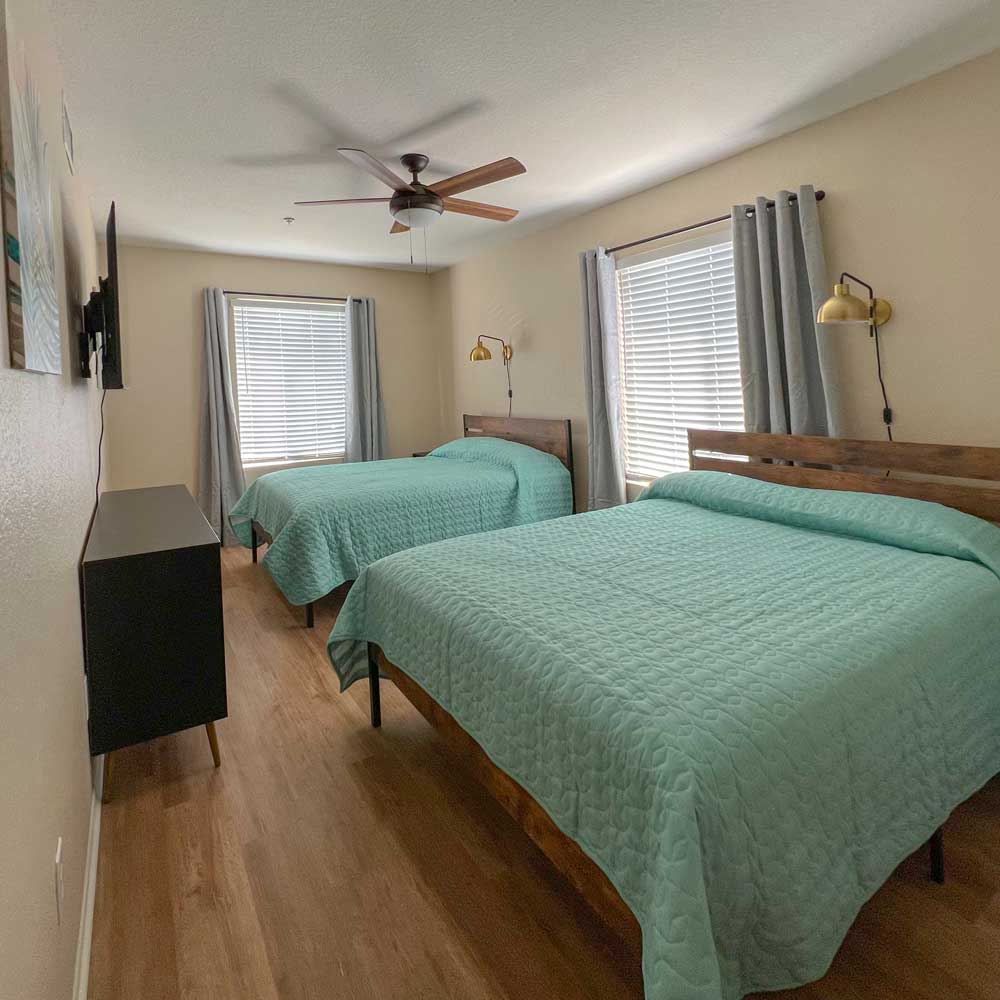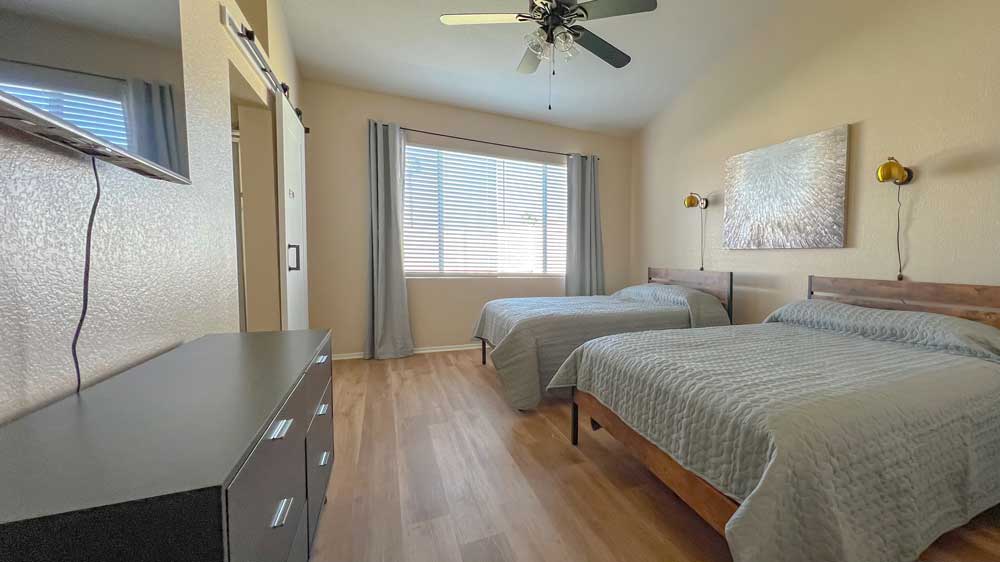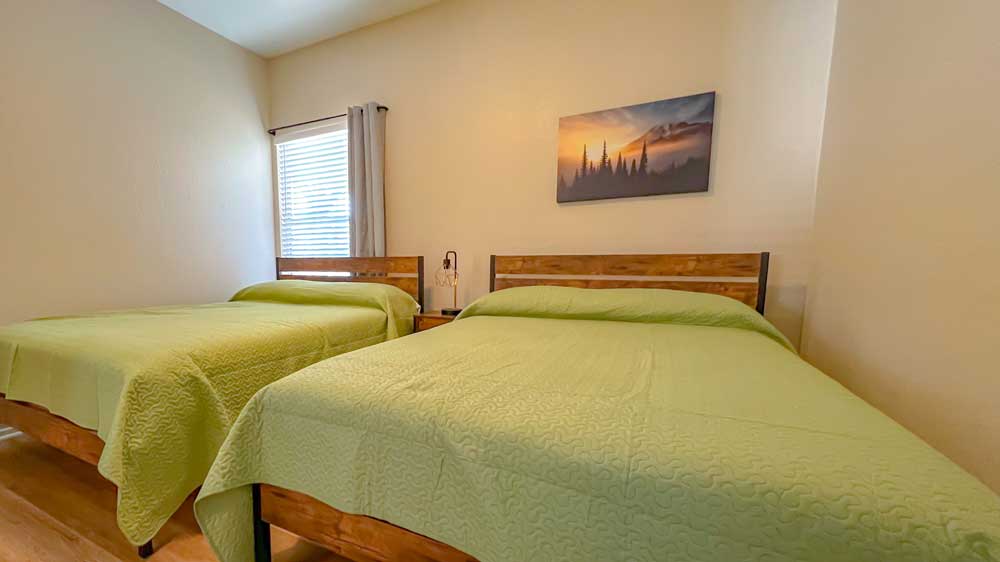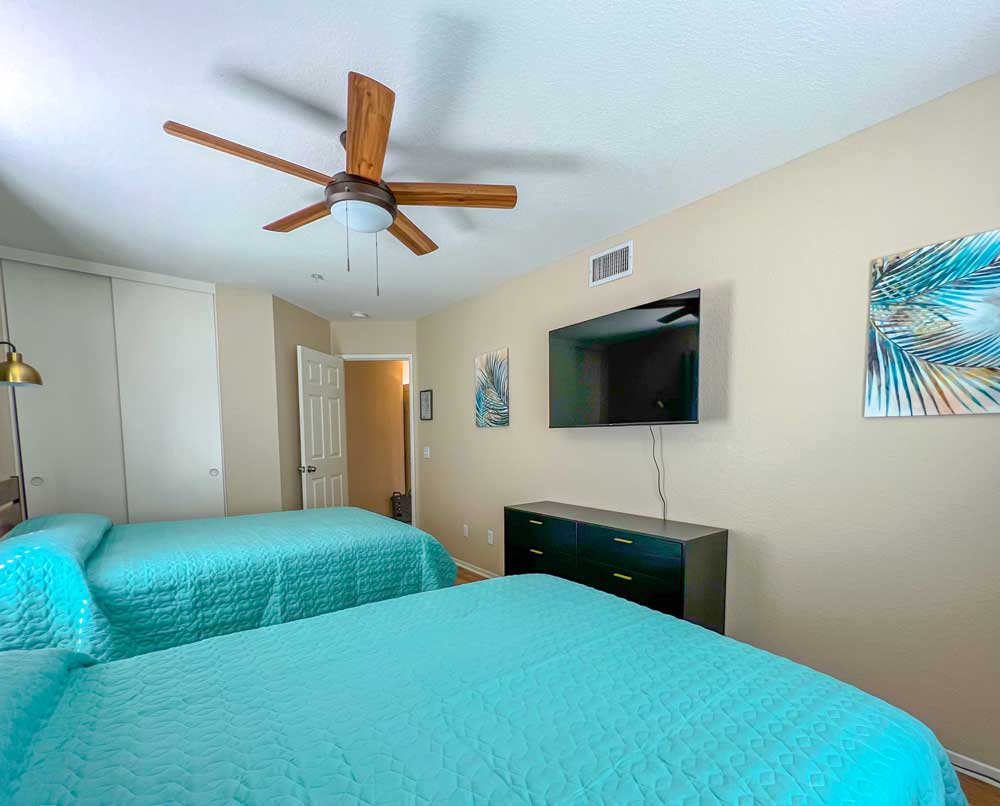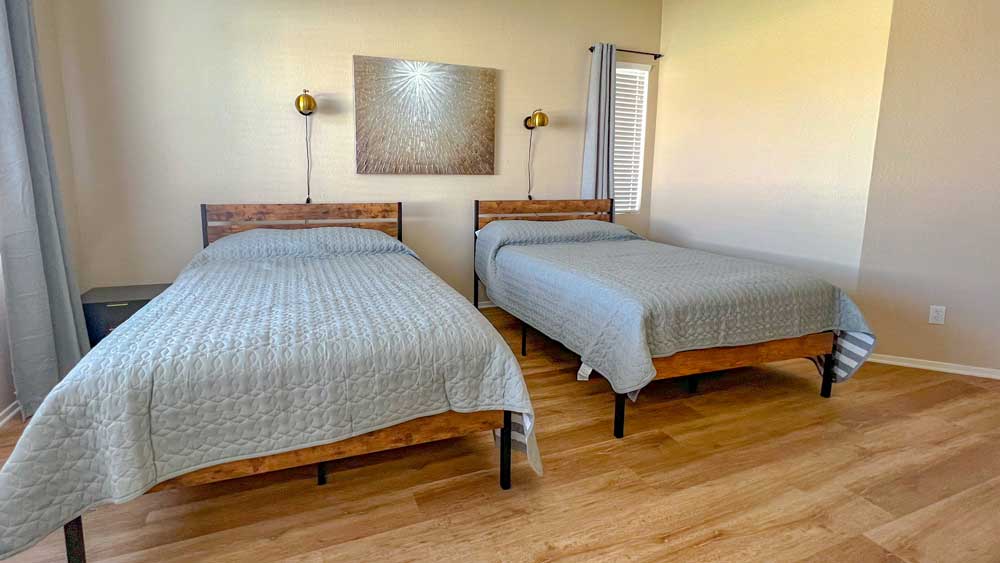Dual Diagnosis Residential Treatment Center in Murrieta, CA | Mountain Sky Recovery
Mountain Sky Recovery provides expert dual diagnosis residential treatment in Murrieta, CA, combining care for both mental health and substance abuse disorders. Our comprehensive programs include detox, therapy, and outpatient services to support lasting recovery.
Dual Diagnosis Treatment Center in California: Mountain Sky Recovery
Welcome to Mountain Sky Recovery, one of the leading dual diagnosis treatment center in California. Our mission is to provide comprehensive, individualized care for individuals struggling with co-occurring mental health disorders and substance abuse. This page will guide you through the services we offer, our treatment approach, and why Mountain Sky Recovery is the right choice for your dual diagnosis treatment.
What is Dual Diagnosis?
Dual diagnosis, a term that has gained prominence since the 1990s, often refers to co-occurring disorders. This signifies the simultaneous presence of a substance use issue alongside a mental health disorder. The spectrum includes substance use disorders like alcohol, opioids, and amphetamines, as well as mental health challenges such as anxiety, depression, PTSD, bipolar disorders, and more.
The intricate relationship between substance use and mental health demands a comprehensive diagnosis by a licensed professional. It’s essential to distinguish between pre-existing mental health disorders and those induced by substance use, taking into account both genetic and environmental factors.
How Do I Know If I Need Dual Diagnosis Treatment?
You may need dual diagnosis treatment if you are dealing with a mental health condition and a substance use problem at the same time. This can look like feeling depressed or anxious, then using alcohol or drugs to calm down, sleep, or “get through the day.” Over time, the substance use can make mental health symptoms worse—and the mental health symptoms can make it harder to stop using.
What does “dual diagnosis” mean in real life?
Dual diagnosis means two things are happening together:
-
A mental health issue (like depression, anxiety, PTSD, bipolar disorder, ADHD, or panic attacks)
-
A substance use issue (like alcohol, opioids, fentanyl, meth, cocaine, benzos, or marijuana misuse)
People often don’t notice both at first. They might think, “I’m just stressed,” or “I can quit anytime.” But if you keep using substances to handle emotions, trauma, or mental health symptoms, that’s a big sign you may need integrated help.
What are common signs you might need dual diagnosis treatment?
You don’t need every sign on this list. Even a few can be enough to reach out for an assessment.
-
You use alcohol or drugs to numb feelings, calm anxiety, or stop racing thoughts
-
Your mental health symptoms get worse when you use, or worse when you stop
-
You feel depressed, hopeless, anxious, paranoid, or emotionally “all over the place”
-
You’ve tried to quit, but mental health symptoms pull you back into using
-
You feel okay for a short time, then crash emotionally and use again
-
You’ve had panic attacks, major mood swings, or intense irritability
-
You have sleep problems that won’t go away (insomnia, nightmares, sleeping all day)
-
You have trouble focusing, keeping a job, or maintaining relationships
-
You’ve been in treatment before, but relapsed because the mental health side wasn’t treated
-
You feel out of control—like your mind and your substance use are “linked”
When is it more than stress or a “bad habit”?
Stress happens to everyone. But it may be more serious if:
-
Your symptoms last weeks or months
-
Your substance use is increasing (more often, higher amounts, stronger substances)
-
You’re using to avoid feelings instead of handling them
-
Your life is being affected (work, school, family, health, legal issues)
Dual diagnosis treatment isn’t about judging you. It’s about treating the full picture, not just one part.
What are urgent warning signs that mean you should get help now?
If any of these are happening, it’s a strong sign you should reach out right away:
-
You think about hurting yourself or feel like life isn’t worth living
-
You’ve had an overdose, blackouts, or dangerous withdrawal symptoms
-
You’re mixing substances (like alcohol + benzos or opioids)
-
You feel detached from reality, extremely paranoid, or hear/see things others don’t
-
You can’t function without using (to sleep, eat, work, or feel “normal”)
If you’re in immediate danger, call 911 or go to the nearest ER.
Why dual diagnosis treatment can help when other treatment hasn’t
Some people try therapy but keep using. Others detox or stop using but then feel mentally worse and relapse. Dual diagnosis treatment helps because it supports both sides at the same time:
-
Mental health care (therapy and, when needed, medication support)
-
Addiction treatment (detox support, relapse prevention, coping skills)
-
A plan for triggers like trauma, stress, sleep problems, and cravings
The simplest way to know for sure
The best next step is a professional assessment. You don’t have to self-diagnose. A dual diagnosis assessment can help figure out:
-
What symptoms may be mental health-related
-
What symptoms may be connected to substance use or withdrawal
-
What level of care is safest (detox, residential, PHP, IOP)
If you’re in or near Murrieta, CA, getting evaluated for dual diagnosis can be the turning point—because it gives you a clear plan instead of guessing.
The Prevalence of Co-Occurring Disorders
Individuals with mental health conditions are at a heightened risk of developing substance use disorders. Data from SAMHSA’s 2021 National Survey on Drug Use and Health reveals that an estimated 9.2 million adults in the U.S. grapple with co-occurring disorders. Furthermore, according to the National Library of Medicine, “Adults with severe mental illness have extraordinarily high rates of co-occurring substance use disorders, typically around 50% or more, which adversely affect their current adjustment, course, and outcome.”
At Mountain Sky Recovery, we understand the intricacies of treating dual diagnosis and are unwavering in our commitment to guiding our patients toward enduring recovery.
The Imperative for Dual Diagnosis Treatment
Mental health disorders can profoundly influence an individual’s perception and management of addiction. Hence, concurrent treatment is paramount for lasting recovery.
- PTSD: As previously mentioned, conditions like PTSD can lead to a reliance on harmful substances, as individuals may use drugs or alcohol as a coping mechanism to deal with traumatic memories or triggers.
- Depression: Individuals with depression might use substances to self-medicate, seeking temporary relief from their symptoms. However, substance use can exacerbate depressive episodes, creating a vicious cycle.
- Anxiety Disorders: People with anxiety disorders might turn to substances to calm their nerves or manage panic attacks. Over time, this can lead to increased tolerance and dependence.
- Bipolar Disorder: Those with bipolar disorder might use substances during manic phases to enhance their euphoria or during depressive phases to alleviate their despair. Substance use can destabilize mood further and interfere with prescribed medications.
- ADHD: Individuals with Attention Deficit Hyperactivity Disorder (ADHD) might misuse stimulants, alcohol, or other drugs. This can lead to increased impulsivity and risk-taking behaviors.
- Borderline Personality Disorder (BPD): People with BPD might use substances to manage intense emotions or feelings of emptiness. Substance use can intensify emotional instability and impulsiveness associated with BPD.
Understanding the intricate relationship between specific mental health disorders and substance use is crucial for effective dual diagnosis treatment.
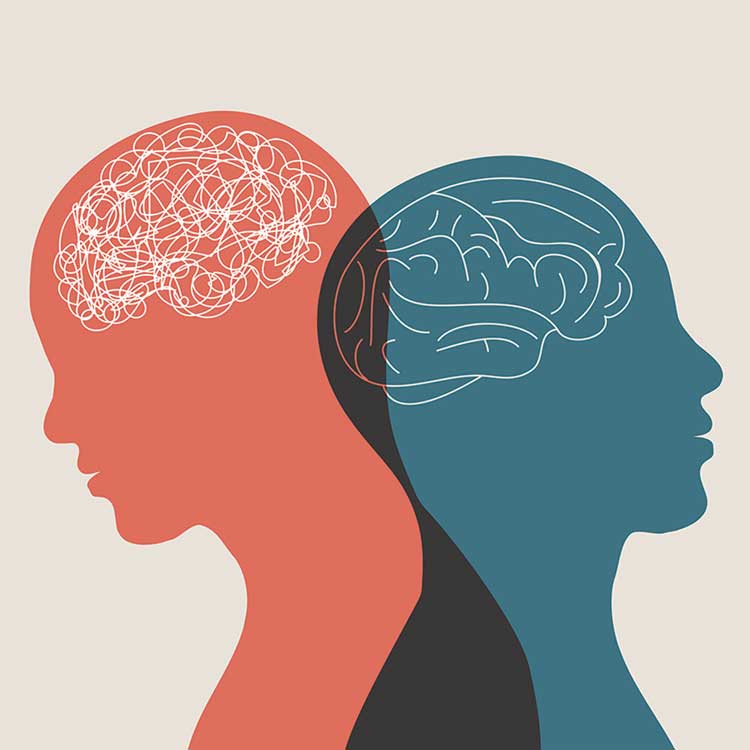
Your Beacon of Hope in the Journey of Dual Diagnosis Recovery

Personalized Dual Diagnosis Treatment
Recognizing the unique interplay between addiction and mental health for each patient is crucial. It’s not uncommon for substance use treatments to sideline the mental health component and vice versa. Overlooking either can impede the path to sustained sobriety.
Comprehensive Treatment Approaches
At Mountain Sky Recovery, we pride ourselves on our innovative BLENDED Recovery Modality. This approach is a testament to our commitment to providing our clients with the most effective and holistic treatment.
Our multidisciplinary team of experts collaborates closely with each client to craft a personalized treatment plan, considering their distinct needs and aspirations. The BLENDED Recovery Modality encompasses:
- 12 Steps: A structured step-by-step peer support approach that has been a cornerstone in addiction recovery for decades.
- CBT (Cognitive Behavioral Therapy): A therapeutic approach that helps clients identify and challenge negative thought patterns and behaviors.
- REBT (Rational Emotive Behavior Therapy): A form of therapy that teaches clients to challenge and change irrational beliefs.
- DBT (Dialectical Behavior Therapy): A therapy that focuses on mindfulness, emotional regulation, and interpersonal effectiveness.
- Disease Model: Recognizing addiction as a chronic disease that affects the brain and behavior.
- Stages of Change: Understanding and leveraging the various stages an individual goes through in their recovery journey.
In addition to these evidence-based approaches, we integrate holistic practices to ensure a well-rounded and comprehensive recovery experience for our clients.
Embracing a Holistic Approach to Dual Diagnosis Treatment
At Mountain Sky Recovery, effective dual diagnosis treatment goes beyond addressing symptoms; it’s about healing the whole person. Our BLENDED Recovery Modality embodies this philosophy, intertwining evidence-based therapeutic approaches with holistic practices. This ensures that every facet of an individual’s well-being—physical, emotional, psychological, and spiritual—is nurtured and restored. By focusing on the complete individual and not just the disorders, we pave the way for a more profound and lasting recovery.

Understanding Dual Diagnosis
Dual diagnosis refers to the condition of having both a mental illness and a substance use disorder. These conditions often interact in ways that make diagnosis and treatment particularly complex. Effective dual diagnosis mental health and addiction treatment addresses both issues concurrently to improve the overall quality of life for the individual.
Treating only one aspect of dual diagnosis—whether it’s the mental health issues or the substance abuse—often leads to incomplete recovery and higher chances of relapse. Comprehensive dual diagnosis treatment ensures that both conditions are treated simultaneously, leading to more sustainable recovery outcomes.
Common Co-Occurring Disorders
Some of the most common co-occurring disorders include:
- Anxiety Disorders: Individuals with anxiety disorders often turn to substances as a way to cope with their symptoms.
- Depression: Substance abuse can exacerbate feelings of depression, creating a vicious cycle.
- Bipolar Disorder: This condition is characterized by extreme mood swings, and individuals may use drugs or alcohol to self-medicate.
- Borderline Personality Disorder: People with this disorder often struggle with impulsivity and unstable relationships, which can lead to substance abuse.
- Post-Traumatic Stress Disorder (PTSD): Trauma survivors frequently use substances to numb their emotional pain.
- Eating Disorders: There is a significant overlap between eating disorders and substance use disorders.
Understanding these common co-occurring disorders helps in tailoring the treatment plan to address all underlying issues effectively.
What Are Mental Disorders?
Mental health disorders encompass a wide range of mental health issues that affect mood, thinking, and behavior. These can include anxiety disorders, depression, bipolar disorder, schizophrenia, and personality disorders. Mental health disorders can significantly impair an individual’s ability to function in daily life, impacting their work, relationships, and overall well-being.
Common Mental Health Issues
Mental health issues are prevalent and can affect anyone, regardless of age, gender, or background. Anxiety disorders, such as generalized anxiety disorder, panic disorder, and social anxiety disorder, are among the most common. These disorders cause excessive fear or worry and can interfere with daily activities. Bipolar disorder is another significant mental health issue, characterized by extreme mood swings between mania and depression. Personality disorders, such as borderline personality disorder and narcissistic personality disorder, also fall under the umbrella of mental health disorders and can cause significant challenges in interpersonal relationships and self-image.
Co-Occurring Disorders
When an individual suffers from both a mental health disorder and substance abuse, it is known as co-occurring disorders or dual diagnosis substance abuse. This condition is complex and requires integrated treatment to address both issues simultaneously. Common co-occurring disorders include combinations of depression and drug addiction, anxiety disorders and alcohol abuse, and bipolar disorder and substance abuse.
The Impact of Co-Occurring Disorders
Co-occurring disorders can complicate treatment because the symptoms of mental health issues and substance abuse can overlap and exacerbate each other. For example, someone with a mental health disorder like bipolar disorder might use drugs or alcohol to self-medicate, leading to addiction. Conversely, substance abuse can worsen mental health symptoms, creating a vicious cycle that is challenging to break without professional help.
Dual Diagnosis Treatment
Call today to get personalized and comfrotable dual-diagnosis treatment in Murrieta, CA at Mountain Sky Recovery
The Role of Mental Health in Dual Diagnosis Treatment
Mental health is a critical component of dual diagnosis treatment. Addressing mental health issues is essential for achieving lasting recovery from substance abuse. Treatment strategies often include psychotherapy, medication management, and support groups. Cognitive-behavioral therapy (CBT) and dialectical behavior therapy (DBT) are common therapeutic approaches used to help individuals understand and manage their mental health disorders and substance abuse.
Specific Mental Illnesses in Dual Diagnosis Treatment
Anxiety Disorders

Anxiety disorders, including generalized anxiety disorder, panic disorder, and social anxiety disorder, are common in individuals with dual diagnosis substance abuse. Treatment for these disorders typically includes a combination of medication and therapy to help manage symptoms and reduce reliance on substances.
Bipolar Disorder

Bipolar disorder is characterized by extreme mood swings and is often linked to substance abuse as individuals may use drugs or alcohol to cope with their symptoms. Treatment for bipolar disorder within a dual diagnosis framework involves mood stabilizers, psychotherapy, and support groups to help individuals maintain stability and sobriety.
Personality Disorders

Personality disorders, such as borderline personality disorder, can complicate substance abuse treatment. Individuals with personality disorders may have difficulty maintaining relationships and managing emotions, which can lead to increased substance use. Dual diagnosis rehab provides specialized therapy to address these issues and promote healthier coping mechanisms.
Mountain Sky Recovery: Our Approach
Holistic and Integrated Treatment
At Mountain Sky Recovery, we believe in treating the whole person, not just the symptoms of their disorders. Our holistic approach includes a combination of medical, therapeutic, and holistic treatments designed to address the unique needs of each individual. This integrated treatment model ensures that both the mental health and substance use components of dual diagnosis are effectively managed.
Every individual’s journey to recovery is unique. Our addiction treatment plans are tailored to meet the specific needs of each client, considering their personal history, the severity of their conditions, and their recovery goals. By integrating personalized, evidence-based therapies that address both substance use disorders and co-occurring mental health challenges, we enhance the effectiveness of the treatment and support long-term recovery.
We utilize evidence-based practices in all our treatment programs. This means that our approaches are backed by scientific research and proven to be effective in treating dual diagnosis. Techniques such as Cognitive Behavioral Therapy (CBT), Dialectical Behavior Therapy (DBT), and Motivational Interviewing are central to our therapeutic interventions.
Personalized Treatment Plans
Every individual’s journey to recovery is unique. Our treatment plans are tailored to meet the specific needs of each client, considering their personal history, the severity of their conditions, and their recovery goals. This personalized approach enhances the effectiveness of the treatment and supports long-term recovery.
Evidence-Based Practices
We utilize evidence-based practices in all our treatment programs. This means that our approaches are backed by scientific research and proven to be effective in treating dual diagnosis. Techniques such as Cognitive Behavioral Therapy (CBT), Dialectical Behavior Therapy (DBT), and Motivational Interviewing are central to our therapeutic interventions.
Safe and Supportive Environment
Mountain Sky Recovery provides a safe and supportive environment where clients can focus on their recovery. Our facilities are designed to offer comfort and tranquility, which are essential for healing. The serene setting helps clients to disconnect from the stressors of everyday life and concentrate on their treatment.
Comprehensive Aftercare Planning
Recovery doesn’t end when treatment does. We provide comprehensive aftercare planning to ensure that clients have the support they need to maintain their recovery after leaving our facility. This includes continued therapy, support groups, and resources to help prevent relapse.
Services Offered at Mountain Sky Recovery
Comprehensive Assessment and Diagnosis
Our first step in treating dual diagnosis is conducting a thorough assessment. This includes a detailed evaluation of the individual’s mental disorders, substance use, and overall health. Accurate diagnosis is crucial for developing an effective treatment plan. As part of this process, we integrate addiction treatment programs that address both substance abuse and underlying mental health issues, ensuring a comprehensive approach to recovery.
Medical Detoxification
For individuals with severe substance abuse issues, we offer medically supervised detoxification. This process helps to safely manage withdrawal symptoms and prepare the individual for further treatment. Our medical team monitors clients around the clock to ensure their safety and comfort during this critical phase.
Individual Therapy
One-on-one therapy sessions are a cornerstone of our dual diagnosis treatment. These sessions help clients explore the underlying causes of their disorders, develop coping strategies, and work towards personal goals. Our therapists use a variety of techniques tailored to the client’s specific needs, such as CBT and DBT.
Group Therapy
Group therapy provides a supportive environment where clients can share their experiences, gain insights from others, and build a sense of community. This is particularly beneficial for addressing the social aspects of recovery. Group sessions often focus on topics like stress management, relapse prevention, and building healthy relationships.
Family Therapy
Family involvement is crucial in the recovery process. Our family therapy sessions help to heal relationships, improve communication, and build a supportive home environment. Families learn about the nature of dual diagnosis, how to support their loved one’s recovery, and how to address their own needs and concerns.
Medication Management
For clients with severe mental health disorders, medication may be an essential part of treatment. Our medical team carefully monitors and adjusts medications to ensure their effectiveness and manage side effects. Medication management is integrated into the overall treatment plan to support both mental health and substance use recovery.
Dual Diagnosis Programs
Our specialized dual diagnosis programs are designed to address the unique challenges faced by individuals with co-occurring disorders. These programs include a combination of therapy, education, and support services tailored to the needs of each client. Programs may include residential treatment, partial hospitalization, and intensive outpatient treatment depending on the individual’s needs.
Holistic Treatment Options
In addition to traditional therapies, we offer a range of holistic treatments such as yoga, meditation, and nutrition counseling. These treatments help to promote overall well-being and support recovery. Holistic treatments aim to balance the mind, body, and spirit, providing a comprehensive approach to healing.
Trauma-Focused Therapy
Many individuals with dual diagnosis have experienced trauma and suffer from mental illness, often using substances as a form of self-medication. Our trauma-focused therapy helps clients process and heal from traumatic experiences, which is essential for long-term recovery. Therapies such as and Trauma-Focused Cognitive Behavioral Therapy (TF-CBT) are used to address trauma-related issues.
Relapse Prevention
Preventing relapse in individuals with substance use disorder is a key focus of our dual diagnosis treatment programs. We teach clients strategies to recognize and manage triggers, develop healthy coping mechanisms, and build a strong support network. Relapse prevention groups and ongoing support help clients maintain their recovery in the long term.

Residential Dual Diagnosis: What Sets It Apart?
What advantages does residential care offer for co-occurring disorders in Murrieta, CA?
Residential dual diagnosis treatment in Murrieta, CA is a focused approach for people facing both addiction and mental health challenges at the same time. Unlike outpatient programs, dual diagnosis residential care Murrieta provides a complete, immersive setting that treats both conditions together. This helps address the complex nature of co-occurring disorders effectively.
The main benefits of residential dual diagnosis Murrieta programs include:
- Comprehensive treatment: Care plans are created to meet both addiction and mental health needs.
- Structured environment: A controlled setting that supports positive daily routines.
- 24-hour supervision: Continuous support ensures safety and quick help when needed.
- Expert dual diagnosis care Murrieta: Skilled professionals use proven therapies that improve recovery chances.
- Access to linked dual diagnosis programs Murrieta: Coordination between addiction treatment and mental health services enhances results.
Those looking for reliable addiction treatment Murrieta along with quality mental health care Murrieta can find effective help through residential programs like those at Mountain Sky Recovery. These programs support lasting wellness beyond just detox or initial therapy.
How does the structured environment of a residential program aid recovery?
A well-organized residential treatment center plays an important role in helping people recovering from dual diagnosis. In Murrieta, residential dual diagnosis treatment centers offer a safe and stable place that encourages healing.
Key features of this structure include:
- 24-hour supervised care: Professional staff watch over patients all day and night to prevent relapse and handle emergencies quickly.
- Consistent daily schedule: Regular activities such as therapy, group sessions, meals, and recreation create routines that help rebuild life skills.
- Professionally staffed teams: Certified counselors, therapists, and medical staff work together to provide personalized support.
- Focus on relapse prevention: Programs teach coping skills and healthy habits to support long-term recovery.
- Safe, supportive setting: Being away from outside stressors helps patients concentrate on healing.
This steady routine helps individuals rebuild their lives step by step with support from a caring community. The structure of residential addiction treatment Murrieta lowers anxiety and builds confidence throughout recovery.
What role does 24/7 support play in managing dual diagnosis?
Having 24/7 support is essential in effective dual diagnosis residential treatment Murrieta CA. People with both addiction and mental health issues need constant care to manage withdrawal symptoms and mental health safely.
Important parts of round-the-clock support include:
- Medically supervised detoxification: Licensed staff help patients safely manage withdrawal.
- Counseling and mental health services Murrieta: Continuous therapy addresses emotional and psychological needs.
- Medication management: Professionals oversee medication use to keep mental health stable without misuse.
- Crisis intervention: Immediate help is available during times of urgent distress.
- Continuous monitoring: Early detection of issues reduces relapse risk and worsening mental health.
- Collaborative treatment team: Nurses, therapists, and doctors adjust care together to improve results.
By providing 24/7 supervision, dual diagnosis residential care Murrieta centers protect patient safety and increase recovery success. This full support helps patients face challenges with guidance and strength.
If you are considering residential dual diagnosis treatment, contact Mountain Sky Recovery. Our team can answer your questions and explain how our specialized programs support your path to lasting recovery.
Tailoring Recovery: Elements of Individualized Treatment Plans
How are treatment plans customized to fit unique needs?
At Mountain Sky Recovery, we know that each patient’s healing journey is different. Dual diagnosis requires special care that combines residential dual diagnosis programs with personalized treatment to meet individual needs. Our licensed clinical experts start with a full assessment to understand the mental health and substance use challenges each patient faces.
Individualized treatment plans use different approaches to fit these unique needs. This often includes residential care in Murrieta, where patients get 24/7 support in a structured setting. Customized programs make sure addiction treatment and mental health treatment in Murrieta match the patient’s condition and goals.
Personalized therapy sessions, specialty programs, and a dedicated care team work together to provide solution-based treatment. This focused care helps address co-occurring disorders and supports long-term recovery. For those needing residential dual diagnosis treatment in Murrieta, this method offers compassionate and effective care that respects each person’s path to wellness.
What is the importance of evidence-based practices?
Evidence-based practices are key to effective dual diagnosis residential treatment in Murrieta, CA. These proven methods rely on clinical expertise and research to provide high-quality care. Approaches like Cognitive Behavioral Therapy (CBT), Dialectical Behavior Therapy (DBT), and Eye Movement Desensitization and Reprocessing (EMDR) help treat trauma, mental health issues, and addiction at the same time.
Medication-assisted treatment (MAT) is also used when appropriate. It helps manage withdrawal symptoms and reduce relapse risk. Our licensed, board-certified clinicians follow clear treatment protocols to achieve the best possible results.
By using trusted behavioral health practices, Mountain Sky Recovery delivers consistent therapy and counseling in Murrieta. We offer several levels of care, including intensive outpatient programs, partial hospitalization, and residential treatment. Our dual diagnosis programs in Murrieta provide clinical and compassionate care to meet a variety of needs.
What collaborative approach ensures alignment with personal goals?
Recovery works best with a collaborative approach involving the patient, care team, and often family members. At Mountain Sky Recovery, we focus on shared decision making to create treatment plans that fit each patient’s personal goals. Patients take an active role in setting goals and maintain regular communication with therapists, counselors, and staff.
Family therapy and counseling in Murrieta are important for supporting progress. We offer group therapy, interpersonal therapy, couples counseling, and dialectical behavior therapy to build strong support networks and improve coping skills.
This shared care model promotes honesty, motivation, and responsibility. Patients receive coaching and ongoing support throughout their addiction recovery in Murrieta. By combining residential dual diagnosis services with outpatient care, the center provides a smooth transition and well-rounded support focused on overall healing.
How are families involved in the care process?
Family involvement plays a vital role in lasting recovery during dual diagnosis treatment. Mountain Sky Recovery includes family therapy and education as key parts of its residential care program in Murrieta. Families join counseling sessions and support groups to better understand mental health and addiction.
Open communication keeps families connected to the collaborative care team. This ongoing involvement builds understanding, lowers stigma, and strengthens the support system needed for recovery.
Families also learn about dual diagnosis and aftercare planning to stay supportive after residential treatment ends. Mental health rehab in Murrieta offers family counseling designed to give loved ones tools to encourage recovery, prevent relapse, and promote resilience.
By involving families, we create a supportive care environment that treats the patient and strengthens the entire support network. This approach helps improve chances for lasting success in recovery.
Addressing Substance Use: From Detox to Long-Term Sobriety
Overcoming addiction starts with detoxification. For people struggling with substance abuse, including opioids like fentanyl and heroin or benzodiazepines (benzo), medically assisted detox provides a safe place to manage withdrawal symptoms. At Mountain Sky Recovery, our addiction treatment program in Murrieta offers full substance abuse treatment, including medically supervised detox that helps patients stay comfortable and safe during this stage.
Detoxification means clearing harmful substances from the body under medical care, also called medically assisted or medication-assisted detox. This method lowers the risks of withdrawal and prepares patients for the next steps in recovery. Our CA residential treatment center offers various detox options, such as fentanyl detox, heroin detox, and detox from opioids and benzos. Each program is adjusted to fit the patient’s needs.
Choosing a trusted detox center with trained healthcare professionals improves the chances of early recovery success. Medically supervised detox uses approved medicines and therapies to ease withdrawal symptoms and support both physical and mental health. For those looking for addiction treatment in Murrieta, a strong detox program is the first step toward lasting sobriety.
What is the approach to medically assisted detox?
Medically assisted detox is a planned process that helps patients safely stop using addictive substances while reducing discomfort and health risks. The approach focuses on creating personalized care plans based on the specific substance involved, such as opioids, benzodiazepines, or others.
The main parts of medically supervised detox include:
- Full Assessment: Reviewing the patient’s drug use history and health.
- Medication-Assisted Treatment (MAT): Using approved medications to manage withdrawal symptoms.
- Continuous Medical Monitoring: Keeping watch over the patient 24/7 to avoid problems.
- Emotional Support: Offering counseling to reduce anxiety and cravings.
- Safe Facility: A detox center with the resources needed to protect patients.
At Mountain Sky Recovery, our dual diagnosis treatment programs in Murrieta combine medically assisted detox with mental health checks to treat co-occurring disorders. This approach cares for both the mind and body during withdrawal. Our addiction treatment center in Murrieta focuses on patient safety and comfort to build a strong start for recovery.
What therapies support continued sobriety in Murrieta?
Keeping sobriety requires ongoing treatment after detox. At our residential treatment centers in Murrieta, CA, we use many proven therapies that suit each person’s needs. These therapies address addiction along with any mental health concerns through dual diagnosis programs.
Our therapy options include:
- Cognitive Behavioral Therapy (CBT): Helps patients recognize and change harmful thoughts and behaviors connected to addiction.
- Dialectical Behavior Therapy (DBT): Teaches emotional control and coping skills, useful for trauma and co-occurring disorders.
- Interpersonal Therapy (IPT): Improves social skills and relationships.
- Eye Movement Desensitization and Reprocessing (EMDR): Helps people process traumatic memories.
- Holistic Methods: Includes mindfulness, yoga, and art therapy to support overall health.
- Relapse Prevention Counseling: Teaches how to handle triggers and stay sober.
Our addiction recovery programs in Murrieta offer both residential and outpatient care, giving patients flexible treatment options. The experienced treatment team, made up of licensed therapists and counselors, provides compassionate, solution-focused care to support mental health and long-term sobriety.
How is relapse prevention integrated into treatment?
Relapse prevention is key in dual diagnosis recovery in Murrieta. Successful treatment prepares patients for life after residential care by teaching resilience and coping skills. Relapse prevention is part of every treatment stage and continues through aftercare planning.
Important parts of relapse prevention at Mountain Sky Recovery include:
- Personal Aftercare Plans: Offer continued help after leaving the program through outpatient care and regular follow-ups.
- Support Groups: Encourage joining peer groups to build a support network.
- Ongoing Mental Health Care: Treats co-occurring disorders with therapy and medication when needed.
- Coping Skill Training: Shows patients how to deal with stress, cravings, and risky situations.
- Building Resilience: Develops the ability to adapt and handle daily challenges.
- Family Involvement: Includes loved ones to strengthen emotional support.
Including relapse prevention helps keep recovery steady and successful. Patients at dual diagnosis treatment centers receive ongoing care focused on their needs, supporting long-term sobriety and healthier lives. Anyone seeking substance abuse treatment in Murrieta should know how relapse prevention supports recovery.
For more details on medically assisted detox, therapies for sobriety, or relapse prevention, contact Mountain Sky Recovery. Our expert team is ready to help you or your loved one with a dual diagnosis treatment plan designed for lasting recovery.
Mental Well-being: Integrated Care for Lasting Harmony
How is mental health addressed in residential rehabs?
Residential treatment centers address mental health by providing care for dual diagnosis and co-occurring disorders. Dual diagnosis care in Murrieta treats both addiction and mental illnesses at the same time, giving patients integrated care in one location. Licensed clinicians offer clinical supervision throughout the inpatient program, using evidence-based practices that combine behavioral health and therapeutic methods.
This approach includes psychotherapy, medical care, and support services tailored to each patient’s needs. Treatment plans focus on the root causes of mental health concerns along with substance use, encouraging long-term recovery and emotional stability. Facilities that offer dual diagnosis care emphasize having qualified staff and licensed mental health professionals to ensure safe and effective treatment.
What kind of counseling is available for managing anxiety and depression?
Mental health rehab centers in Murrieta provide various counseling options to help manage anxiety, depression, and related emotional health issues. These include:
- Cognitive Behavioral Therapy (CBT): Helps change negative thinking patterns.
- Dialectical Behavior Therapy (DBT): Teaches emotional regulation and handling distress.
- Interpersonal Therapy (IPT): Improves social skills and relationships.
- Family Therapy: Helps repair and support family relationships.
There are also therapies focused on trauma, PTSD, and obsessive-compulsive disorder. These treatments promote stress management and use solution-based plans to help patients regain control of their lives. Licensed counselors work closely with patients to build coping skills suited to their individual situations.
How are medications managed and monitored?
Medication-assisted treatment (MAT) is important in many dual diagnosis programs in Murrieta, especially for bipolar disorder and mood disorders related to addiction. Board-certified psychiatrists handle medication management and pharmacotherapy, making sure medications like benzodiazepines are used safely.
Regular clinical supervision helps avoid risks like withdrawal symptoms and medication misuse. This monitoring ensures patient safety while supporting effective mental health care. Medication plans are adjusted based on how patients respond, balancing symptom relief and addiction treatment goals.
What coping strategies are taught to promote emotional health?
Patients are taught coping strategies that improve emotional health, resilience, and daily life skills. They learn how to manage stress, anger, and self-harm urges through mindfulness and relaxation techniques. These tools help prevent relapse and support the healing process.
Behavioral health education uses solution-based methods to build confidence and support ongoing mental wellness. Activities focus on developing skills that patients can use after leaving residential care. Teaching these coping strategies is key to promoting lasting mental well-being.
—
If you or a loved one is facing dual diagnosis or co-occurring disorders, contact our licensed team today to learn about our residential treatment programs and mental health services in Murrieta. We are here to support your path to lasting recovery and emotional balance.
Building a Future: Life After Residential Treatment
What aftercare planning supports ongoing success?
After finishing residential treatment, aftercare planning is vital for sustained recovery and preventing relapse. This step connects individuals to structured outpatient services such as outpatient programs, intensive outpatient programs (IOP), and partial hospitalization programs (PHP). These programs provide ongoing mental health services and support for dual diagnosis recovery in Murrieta.
A teamwork approach between the treatment team and support groups guarantees continuity of care. Long-term care focuses on building sustainable recovery by addressing both addiction and mental health through ongoing support. Key parts include:
- Relapse prevention strategies adjusted to individual needs
- Regular counseling sessions
- Connection to sober living environments
- Participation in support groups
- Continued medical supervision and medication management when necessary
Using resources like Carelon, which offers integrated support services, helps improve access to aftercare. This creates strong connections that support ongoing success. Having this structured plan helps prevent relapse and empowers people to keep moving forward in their recovery.
What is the benefit of alumni programs and support groups?
Alumni programs and support groups play an important role in recovery after residential treatment. These programs build community connection and offer peer support, which are important for maintaining sobriety and mental health.
The benefits include:
- Group therapy sessions where participants share recovery experiences
- Peer mentorship and mutual encouragement
- Better relapse prevention with steady social support
- A supportive network that understands dual diagnosis recovery challenges
- Participation in community events that strengthen commitment to sobriety
For those seeking dual diagnosis support in Murrieta, alumni programs and local support groups provide a safe place for healing and growth. Taking part helps reinforce coping skills learned during residential recovery and motivates individuals to stay on track.
How does Mountain Sky Recovery support sustained recovery?
Mountain Sky Recovery provides dual diagnosis residential treatment in Murrieta, CA, designed to support lasting recovery through integrated care. Licensed clinical staff specialize in addiction treatment combined with mental health rehab, offering a whole-person approach.
Mountain Sky Recovery’s program includes:
- Evidence-based practices designed to meet each patient’s needs
- Medication-assisted treatment alongside therapy and counseling
- A skilled treatment team offering medical supervision and personalized care
- Professionalism and compassionate support
- A residential treatment center creating a safe and stable environment
By combining medication management, therapy, and other approaches, Mountain Sky Recovery helps patients develop skills for long-term sobriety and mental wellness. Their focus on integrated care ensures both addiction and mental health needs are addressed in one place, improving chances for recovery success.
How to find dual diagnosis support in Murrieta, CA?
Finding the right dual diagnosis center in Murrieta, CA, means looking at available treatment options and trusted facilities that fit individual needs. Dual diagnosis programs here address both mental health treatment and substance abuse treatment for co-occurring disorders.
Steps to find good support include:
- Searching licensed treatment facilities in Riverside County that offer dual diagnosis support.
- Comparing residential care and outpatient options based on location and insurance coverage.
- Consulting with experienced treatment teams that provide counseling and integrated care.
- Checking that programs offer full mental health services and medication management.
- Using expert help or care navigation services to find the best match.
Rehab centers and mental health providers in Murrieta offer specialized dual diagnosis treatment programs designed to support lasting recovery. Choosing licensed facilities ensures professional care through treatment and beyond.
What to Expect in a Dual Diagnosis Treatment Program
Each dual diagnosis residential treatment center offers a unique experience based on your personal needs. Still, there are several core elements you can generally expect during your stay:
-
A consistent, structured daily routine that includes therapy, counseling, and group sessions
-
Ongoing medical oversight for both mental health and substance use challenges
-
Customized treatment plans that target co-occurring conditions
-
A safe, supportive space designed to encourage healing and growth
-
Use of evidence-based therapies like cognitive behavioral therapy (CBT)
-
Skill-building opportunities, relapse prevention tools, and educational support
-
Access to psychiatric care and medication management when needed
-
A focus on overall wellness, including proper nutrition and self-care
-
Guidance and planning for a smooth transition to the next level of care
Additional Resources
- Mental Health America: Learn more about mental health disorders and available resources.
- Substance Abuse and Mental Health Services Administration (SAMHSA): Find information on substance use and mental health treatment options.
- National Institute on Drug Abuse (NIDA): Get insights into the science of drug addiction and recovery.
Contact Us
If you or a loved one is struggling with dual diagnosis, don’t wait to seek help. Contact Mountain Sky Recovery today to learn more about our treatment programs and start your journey to recovery. Our compassionate and knowledgeable staff are here to answer your questions and guide you through the process of getting the help you need.
Additional Information and Questions
Do you have questions about building a future after treatment? Share your thoughts or contact us today to learn more about dual diagnosis treatment centers and how to keep your recovery strong.
What types of dual diagnosis treatment programs are available in Murrieta, CA?
We offer dual diagnosis inpatient and residential treatment programs for people dealing with both substance abuse and mental health issues. These programs include therapy, medication, and holistic care for conditions like alcohol addiction, fentanyl use, bipolar disorder, and ADHD.
How does dual diagnosis therapy support long-term recovery?
Dual diagnosis therapy combines counseling, psychiatric care, and support groups to treat mental health disorders along with addiction. This approach helps improve resilience, stabilize mood, and reduce the chance of relapse for lasting recovery.
What should I expect during residential treatment in Murrieta?
Residential treatment provides a safe and supportive place with 24/7 care and detox services. You will take part in therapy, fitness activities, and learning sessions focused on addiction and mental health recovery.
Are there specific facilities in Murrieta that specialize in dual diagnosis?
Yes, there are CARF-accredited centers in Murrieta that offer dual diagnosis inpatient programs. These centers have certified counselors, psychiatrists, and medical staff skilled in treating co-occurring disorders and offering aftercare services.
Can dual diagnosis treatment help with addictions involving fentanyl or alcohol?
Yes. Our programs include medical detox and therapy designed to safely treat addictions to fentanyl, alcohol, and other substances, addressing both addiction and mental health needs.
How do residential treatment centers work with mental health services in Murrieta?
Residential centers coordinate with mental health experts to provide combined care. This includes medication management, couples counseling, and support for conditions like OCD and attention-deficit disorder.
Is insurance accepted for dual diagnosis and residential programs?
Many centers accept insurance plans such as Blue Cross, Multiplan, and UMR. Our admissions team can help you check your benefits and guide you through getting the right treatment.
What makes dual diagnosis residential programs in the Inland Empire effective?
These programs focus on individual care, using proven therapies and holistic methods like art therapy and fitness. Skilled staff and ongoing support groups help clients gain long-term sobriety and improved mental health.
Key Insights
- We offer comprehensive dual diagnosis inpatient and residential treatment programs in Murrieta, CA. Our care addresses both mental health and substance abuse, including alcohol treatment Murrieta, CA, and drug rehabilitation Murrieta.
- Our dual diagnosis rehab centers in Murrieta use structured and holistic approaches like cognitive behavioral therapy, EMDR, family and couples counseling, and dialectical behavior therapy to support long-term sobriety and mental wellness.
- Located in Riverside County within the Inland Empire, our residential facilities include detoxification services and personalized plans for opioid, cocaine, vaping, and other substance dependencies.
- Our mental health rehab Murrieta services treat conditions such as obsessive compulsive disorder (OCD), ADHD, mania, and mood disorders, offering integrated behavioral health support.
- As a CARF-accreditedrehab in Murrieta, we accept many insurances including PPO, UMR, Multiplan, and BlueCross, making professional care accessible.
- Our residential recovery and treatment centers provide 24/7 supervision, outpatient programs, partial hospitalization options, and ongoing counseling to support adults and adolescents at every recovery stage.
- We combine evidence-based practices with holistic methods, fitness programs, and multilingual services to improve comfort and engagement during treatment.
- Our rehab programs help you manage addiction and mental health by offering trusted assistance, clinical expertise, and personalized strategies for sustainable recovery.
- We serve clients throughout southern California, including Hemet, Menifee, Riverside, San Diego, and Los Angeles, covering complex needs related to substance abuse, detox, and mental health rehab.
- Our dual diagnosis residential treatment centers promote family involvement and community connection to build resilience, life skills, and healthy coping strategies.
- Experienced counselors, psychiatrists, and therapists work together to create individualized plans addressing both behavioral health and substance use disorders at the same time.
- We provide clear information on insurance coverage, cash payment options, and healthcare benefits to remove barriers and ensure access to the best care.
- Our dual diagnosis residential and inpatient programs include medically supervised detox centers and use modern treatment methods, setting a high standard of care in Murrieta, CA.
- If you need treatment for dual diagnosis in Murrieta, our residential facilities offer structured and holistic care designed for men and women seeking long-term recovery and mental health stability.
- Contact us today to learn how our rehab Murrieta CA services, located just 1 to 8 miles from places like Fallbrook and Rancho Creek, can help you or a loved one start the path to healing and wellness.
See Our Premier Facility!
FAQs About Dual Diagnosis Treatment
Q: What leads to dual diagnosis?
Q: How is dual diagnosis addressed?
Q: Who are the professionals involved in this treatment?
Q: How does dual diagnosis differ from comorbidity?
Q: What are the benefits of treating both conditions simultaneously?
Testimonials
“Mike was my counselor for about 6 months. I came to him broken, sick, and deep in the horrors of addiction. I had completely lost all hope. Mike was the first person to show me kindness and compassion in a long time.
I’ve never felt comfortable opening up to people before, but Mike was able to challenge my beliefs and give me the courage to overcome my fears and break down the walls I had built up over many years of addiction. He took the time to listen to me and allow me to express the issues I was dealing with.
His direct but non-judgmental manner made hard topics easier to address head-on, which I really needed and appreciated. I now have 4 years sober and a life that I never thought was possible and I truly believe I would not be here without the care, patience, and dedication I received from Mike.”
Rebecka
“Since early childhood, the truth was hidden from me. The truth about my family, the truth about the world, the truth about love, and the truth about myself. I’m not sure he knows this, but Mike is the first person who ever told me the truth.
When I wanted to leave, he gave me reasons to stay. When I started to doubt my abilities, he gave me reasons why I shouldn’t. Most importantly, when I started to judge and focus on others, he gave me a mirror. Those are a small fraction of all the examples of some of the truths he told me.
Every year when I take a chip, I break down and cry not only because I am proud to still be clean, but because I’m thankful I let Mike tell me the truth.
I will be grateful for him until the day I leave this Earth, and I imagine I’ll do it clean because Mike gave me the ability to imagine it”
Rebecka
Mike has an amazing ability to relate to his clients and use his own experiences to guide you through whatever obstacle life throws your way. I’ve never felt more supported from any previous counselors or therapists and I highly recommend giving Mike a chance to help you get your life back.
I really never thought I could be sober, or live a fulfilling life and it was Mike that believed in me and walked me through the challenges until I could stand on my own two feet. 4 and a half years later, and he still checks on me periodically and makes me feel supported.
I can’t say enough about how amazing my experience was working with Mike, he truly cares for his clients and has the biggest heart and passion for helping people.”
Julie
Why Choose Mountain Sky Recovery?

Individualized Care
Our compassionate staff works closely with clients to develop personalized treatment plans that address their unique needs and goals.
Proven Methods
We utilize evidence-based treatments and therapies to ensure the highest level of success for our clients.
Holistic Approach
We incorporate wellness practices and alternative therapies to promote healing in all aspects of our client's lives.
Supportive Community
Our nurturing environment fosters a sense of belonging and support, empowering clients to build lasting connections and recovery networks.


